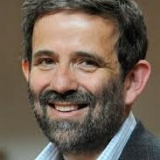This article is a good example of EfDs mission: combining policy advice and research. It is based on a consultancy for the US EPA who asked Maureen Cropper to lead a process with a panel of experts to help advise them on what discount rate to use for climate change – and specifically about falling discount rates. This paper (and a longer one in REEP that is forthcoming) is a byproduct of that work.
In economic project analysis, the rate at which future benefits and costs are discounted relative to current values often determines whether a project passes the benefit-cost test.This is especially true of projects with long time horizons, such as those to reduce greenhouse gas (GHG) emissions. Whether the benefits of climate policies, which can last for centuries, outweigh the costs, many of which are borne today, is especially sensitive to the rate at which future benefits are discounted. This is also true of other policies, e.g., affecting nuclear waste disposal or the construction of long-lived infrastructure.




